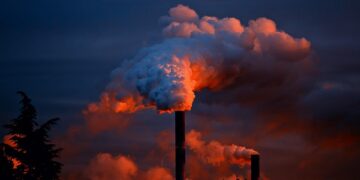Harvesting Change: The Impact of Climate Change on Agriculture
Climate change is having a profound effect on agriculture around the world. With increasing temperatures, changing precipitation patterns, and more frequent extreme weather events, farmers are facing unprecedented challenges in growing food and sustaining their livelihoods. In this article, we will explore the impact of climate change on agriculture and discuss how farmers are adapting to these changing conditions.
The Effects of Climate Change on Agriculture
One of the most significant impacts of climate change on agriculture is the changing growing conditions for crops. Rising temperatures can lead to heat stress in plants, reducing yields and quality. Changes in precipitation patterns can also affect crop growth, with droughts and floods becoming more common in many regions. Extreme weather events, such as hurricanes and wildfires, can cause widespread damage to crops and infrastructure.
Climate change is also affecting the distribution of pests and diseases that can harm crops. Warmer temperatures can allow pests to thrive in new areas, while changing weather patterns can create conditions that are more favorable for the spread of diseases. This can lead to increased use of pesticides and other chemical treatments, which can have negative environmental and health impacts.
Adapting to a Changing Climate
As the impacts of climate change become more severe, farmers are increasingly turning to adaptation strategies to protect their crops and livelihoods. One common approach is to diversify crops and livestock, planting a variety of species that are more resilient to changing conditions. This can help farmers reduce their risk of crop failure and maintain stable yields.
Improving soil health is another key strategy for adapting to climate change. Healthy soils can better retain water, nutrients, and carbon, helping crops withstand droughts and floods. Practices such as cover cropping, conservation tillage, and crop rotation can help farmers build soil resilience and reduce their reliance on chemical inputs.
Investing in new technologies and practices is also essential for farmers to adapt to a changing climate. Precision agriculture tools, such as GPS-guided tractors and drones, can help farmers optimize their use of resources and reduce their environmental impact. Climate-smart practices, such as agroforestry and water harvesting, can also help farmers build resilience to climate change while reducing greenhouse gas emissions.
The Role of Policy and Research
In addition to on-farm adaptation strategies, policymakers and researchers play a crucial role in helping farmers adapt to the impacts of climate change. Governments can provide financial support for farmers to implement climate-smart practices, such as soil conservation and water management. They can also develop policies to reduce greenhouse gas emissions from agriculture and promote sustainable land use practices.
Research institutions can also contribute to the development of new technologies and practices that help farmers adapt to climate change. By studying the impacts of climate change on agriculture and developing innovative solutions, researchers can help farmers build resilience to changing conditions and protect their livelihoods.
Conclusion
Climate change is having a significant impact on agriculture, posing challenges to farmers around the world. By implementing adaptation strategies, investing in new technologies, and supporting policies that promote sustainability, farmers can build resilience to the impacts of climate change and ensure the long-term viability of agriculture. As we continue to confront the challenges of a changing climate, collaboration between farmers, policymakers, researchers, and other stakeholders will be essential to ensure a sustainable future for agriculture.












